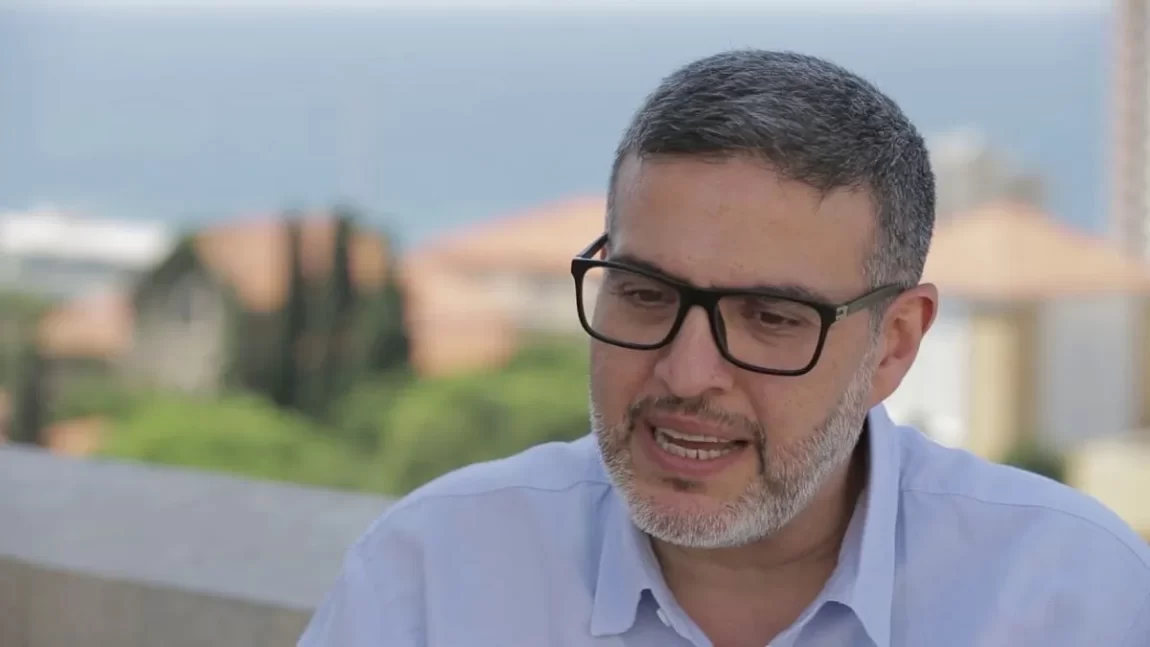
Dr Ghassan Abu-Sittah is no stranger to conflict zones, having spent decades volunteering for medical charities in Palestine, Lebanon, Yemen, Syria, and Iraq. But the plastic and reconstructive surgeon says his latest experience in Gaza has no parallel.
Overview
The scale of the current suffering in Gaza, “the intensity, the ferocity, the viciousness, and the deliberate targeting of the hospitals”, he says, was like “a tsunami”.
Dr Abu-Sittah travelled to Gaza days after Israel began its bombardment in response to the October 7 attack by Hamas. He remained in the besieged enclave for 43 days, working mainly in northern Gaza as a volunteer for Médecins Sans Frontières (MSF).
He was at Al-Ahli Hospital during the massacre on October 17, 2023, and was among the physicians who testified, surrounded by a sea of blanket-shrouded bodies, in the hospital courtyard in the attack’s immediate aftermath.
In this moving interview with Maysa Jalbout, Dr Abu-Sittah shares his experiences of working in Gaza and what it was like knowing his wife and children were watching him caught up in the attacks in real time on social media.
Since returning home to the UK, he has announced plans to set up The Ghassan Abu Sittah Children’s Fund to pay for injured Palestinians to receive medical and rehabilitation treatment in Lebanon.
Children have borne the brunt of this latest chapter of conflict in Palestine. Before October 7, there were nearly 200 war-related amputations among young people in Gaza as well as some 2,000 adults living with amputations from earlier conflicts. Dr Abu Sittah says there could now be as many as 5,000 child amputees, with many losing limbs due to an inability to treat what would ordinarily be very salvageable injuries.
Children with amputations need new prosthetics every six to eight months as they grow and could require as many as 12 surgeries before they reach adulthood, he explained. In addition to the physical impact of their injuries, their mental health needs are also “life altering”.
Dr Abu-Sittah was born in Kuwait after his parents were forced from their homes in Palestine in 1948 and became refugees in Gaza. He studied medicine at the University of Glasgow and after completing his Specialist Registrar training in London, he went on to do fellowships in Paediatric Craniofacial Surgery and Cleft Surgery at Great Ormond Street Hospital for Sick Kids and then a fellowship in Trauma Reconstruction at the Royal London Hospital. In 2010 he was awarded Fellowship of the Royal College of Surgeons (Plastic Surgery).
Dr Abu-Sittah has served as an associate professor and head of the Division of Plastic and Reconstructive Aesthetic Surgery at the American University of Beirut (AUB) Medical Center, in 2015, became a founding director of the Conflict Medicine Program at AUB’s Global Health Institute, and in March was named Rector of the University of Glasgow.
You could listen to all the episodes of The Impact Room here.
About the host
Maysa Jalbout is a leader in international development and philanthropy. Her previous roles include founding CEO of the Abdulla Al Ghurair Foundation for Education, a $1bn philanthropic initiative based in Dubai, and founding CEO of the Queen Rania Foundation. Maysa is a visiting scholar at MIT and ASU, and a non-resident Fellow at the Brookings Institution. Find her on Twitter, @MaysaJalbout.